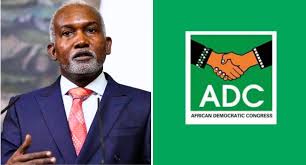The Federal Ministry of Foreign Affairs has strongly criticised the African Democratic Congress (ADC) over its recent comments on delays in ambassadorial appointments, describing the party’s statement as “false,” “insulting,” and politically motivated.
In a statement issued Tuesday in Abuja by Alkasim Abdulkadir, the media aide to the Minister of Foreign Affairs, Ambassador Yusuf Maitama Tuggar, the ministry said the ADC’s claims were misleading and disrespectful to the dedicated staff of Nigeria’s foreign missions.
Ambassador Tuggar took particular offence to ADC’s assertion that Nigerian foreign missions had become “sorry symbols” due to the prolonged absence of appointed ambassadors. He described the statement as alarmist and fundamentally misinformed, saying it failed to appreciate the realities of diplomatic operations and the efforts of foreign service professionals who continue to work in challenging conditions.
“Nigeria remains fully and effectively represented in all of its foreign missions by seasoned diplomats and experienced chargés d’affaires,” Tuggar said. “These professionals continue to advance Nigeria’s interests, uphold consular services, facilitate trade and investment, and safeguard the welfare of citizens abroad.”
The minister added that claims about low morale among diplomats were “categorically untrue,” insisting that Nigerian diplomats continue to serve with excellence and integrity across the globe.
The ministry also rejected the notion that the delay in appointing new ambassadors was a sign of dysfunction, explaining that the process is a sovereign responsibility and not subject to partisan pressure or political appeasement.
“The appointment of ambassadors is a sovereign function, not a matter to be rushed for political convenience or partisan appeasement,” the statement read. “President Bola Ahmed Tinubu is committed to reforming the foreign service architecture to ensure that future postings are driven by merit, competence, national interest, and strategic alignment—not patronage or expediency.”
In further defending Nigeria’s foreign relations, the statement highlighted recent diplomatic engagements led by Ambassador Tuggar, including meetings with counterparts from the United States, United Kingdom, Germany, China, Japan, and Egypt. It also pointed to Nigeria’s active participation in BRICS, the African Union (AU), and ECOWAS as proof that the country maintains a strong diplomatic presence and international relevance.
The ministry also addressed another allegation by the ADC that the Nigerian government mishandled a reported U.S. proposal to accept deported Venezuelans. It clarified that the federal government’s response was consistent with Nigeria’s sovereign rights and international norms.
“The notion that the Foreign Minister’s public articulation of Nigeria’s position was a diplomatic faux pas ignores the realities of modern diplomacy, where transparency and responsible communication are increasingly vital,” the statement said.
Dismissing the ADC’s criticism as “political opportunism,” the Foreign Affairs Ministry urged opposition parties and political actors to avoid using sensitive areas like foreign policy as platforms for scoring cheap political points.
“Diplomacy must not be used as a tool for partisan attacks. It is too valuable to be undermined by sensationalism,” the ministry warned. “Nigeria’s global reputation is not a subject for domestic political point-scoring. Diplomacy is built on consistency, discretion, and strategic clarity, not populism.”
